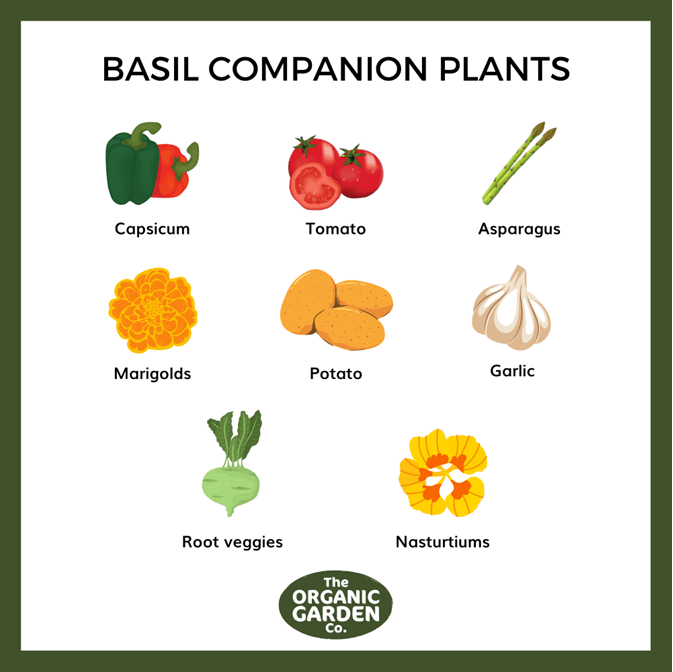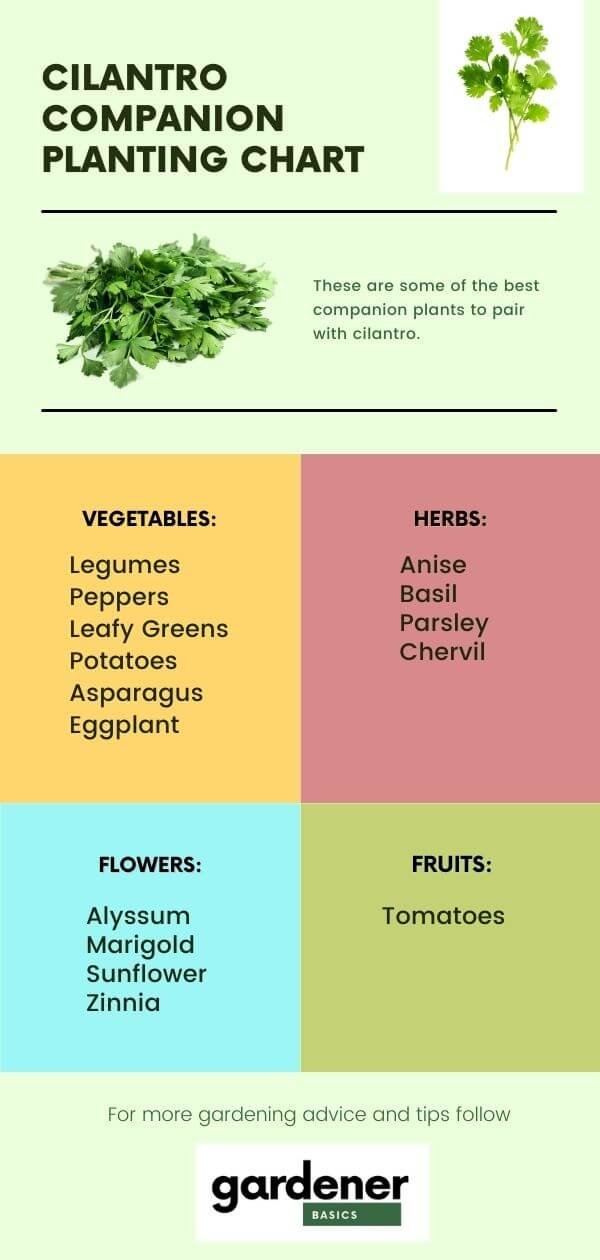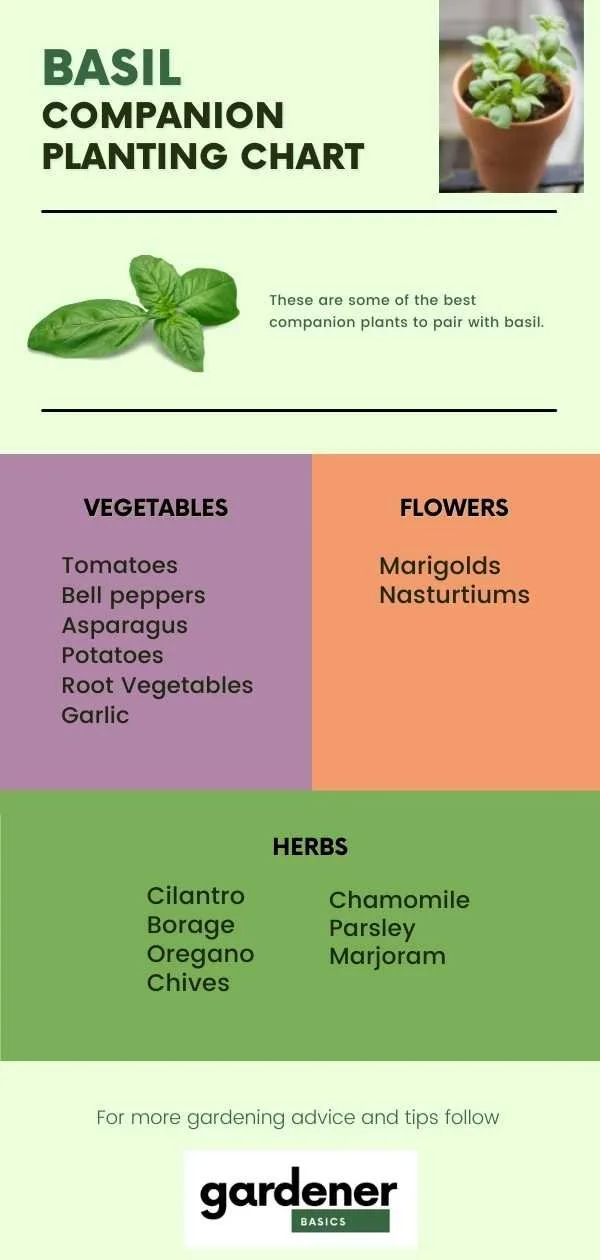Companion Plants That Will Make Your Basil Thrive
Companion Planting That Will Make Your Basil Thrive
Basil is a delicious and versatile herb that can be used in a variety of dishes. It's also relatively easy to grow, but there are a few things you can do to help your basil plants thrive. One of the best ways to do this is by companion planting.
Companion planting is the practice of planting certain plants together to benefit each other. Some plants attract beneficial insects, while others repel pests. Some improve the flavor of other plants, while others help to improve the soil.
There are a number of different companion plants that can help your basil plants thrive. Some of the best include:
- Tomatoes: Tomatoes and basil are a classic companion plant combination. They both have similar growing requirements, and they help to improve each other's flavor. Basil can help to deter tomato hornworms, and tomatoes can help to provide shade for basil plants.
- Marigolds: Marigolds are a great companion plant for basil because they help to repel pests. They also attract beneficial insects, such as ladybugs, which help to control pests.
- Cilantro: Cilantro and basil are both members of the mint family, and they benefit each other in a number of ways. They both help to repel pests, and they also improve the flavor of each other's dishes.
- Root vegetables: Root vegetables, such as carrots, beets, and radishes, can help to deter pests that are attracted to basil plants. They also help to improve the soil structure, which can benefit basil plants.

- Borage: Borage is a flowering herb that helps to attract beneficial insects, such as bees and butterflies. It also helps to improve the flavor of basil plants.
- Oregano: Oregano and basil are both herbs that have strong flavors, and they can help to enhance each other's flavors. Oregano can also help to deter pests that are attracted to basil plants.
- Parsley: Parsley and basil are both members of the carrot family, and they benefit each other in a number of ways. They both help to improve the flavor of each other's dishes, and they also help to repel pests.
In addition to these plants, there are a number of other companion plants that can benefit basil plants. Some of these include:
- Asparagus: Asparagus helps to attract ladybugs, which help to control pests that are attracted to basil plants.
- Chives: Chives help to repel pests, and they also improve the flavor of basil plants.
- Sweet alyssum: Sweet alyssum helps to attract beneficial insects, such as bees and butterflies. It also helps to improve the flavor of basil plants.
When choosing companion plants for basil, it's important to consider the plants' growing requirements. Basil plants need full sun and well-draining soil. They also need to be watered regularly.
It's also important to consider the plants' size. Basil plants can grow quite large, so it's important to choose companion plants that won't outgrow them.
With a little planning, you can choose the perfect companion plants to help your basil plants thrive.
Basil is a delicious and versatile herb that can be used in a variety of dishes. But did you know that there are certain plants that can help basil grow even better? These are called companion plants, and they can offer a number of benefits to basil, such as attracting beneficial insects, deterring pests, and improving the flavor of basil.
Some of the best companion plants for basil include:
- Tomatoes: Tomatoes and basil are a classic combination, and for good reason. They complement each other's flavors perfectly, and tomatoes can help to deter pests that target basil.
- Marigolds: Marigolds are known for their pest-repelling properties, and they can help to keep aphids, whiteflies, and other pests away from basil.
- Oregano: Oregano is another herb that can help to deter pests, and it can also help to improve the flavor of basil.
- Chives: Chives are a flowering herb that can help to attract beneficial insects, such as ladybugs and hoverflies. These insects help to control pests, which can benefit basil.
- Borage: Borage is a flowering herb that can help to improve the flavor of basil. It also produces nectar that attracts bees and other pollinators.
If you're looking to grow the best basil possible, consider planting some of these companion plants alongside it. You'll be rewarded with delicious, flavorful basil that's free from pests.
For more information about companion plants to basil, visit Garden Wiki.
FAQ of companion plants to basil
null
Image of companion plants to basil
- Marigolds: Marigolds are a great companion plant for basil because they help to repel pests, such as aphids and whiteflies. They also add a splash of color to the garden.

- Chives: Chives are another good companion plant for basil because they help to improve the flavor of basil. They also help to repel pests, such as carrot rust flies.
- Oregano: Oregano is a popular herb that is often paired with basil. It helps to improve the flavor of basil and also helps to repel pests.
- Parsley: Parsley is a good companion plant for basil because it helps to attract beneficial insects, such as ladybugs. These insects help to control pests that can harm basil plants.
- Tomatoes: Tomatoes and basil are a classic combination that is often used in Italian cuisine. Tomatoes help to improve the flavor of basil and also help to protect basil plants from pests.




Post a Comment for " Companion Plants That Will Make Your Basil Thrive"